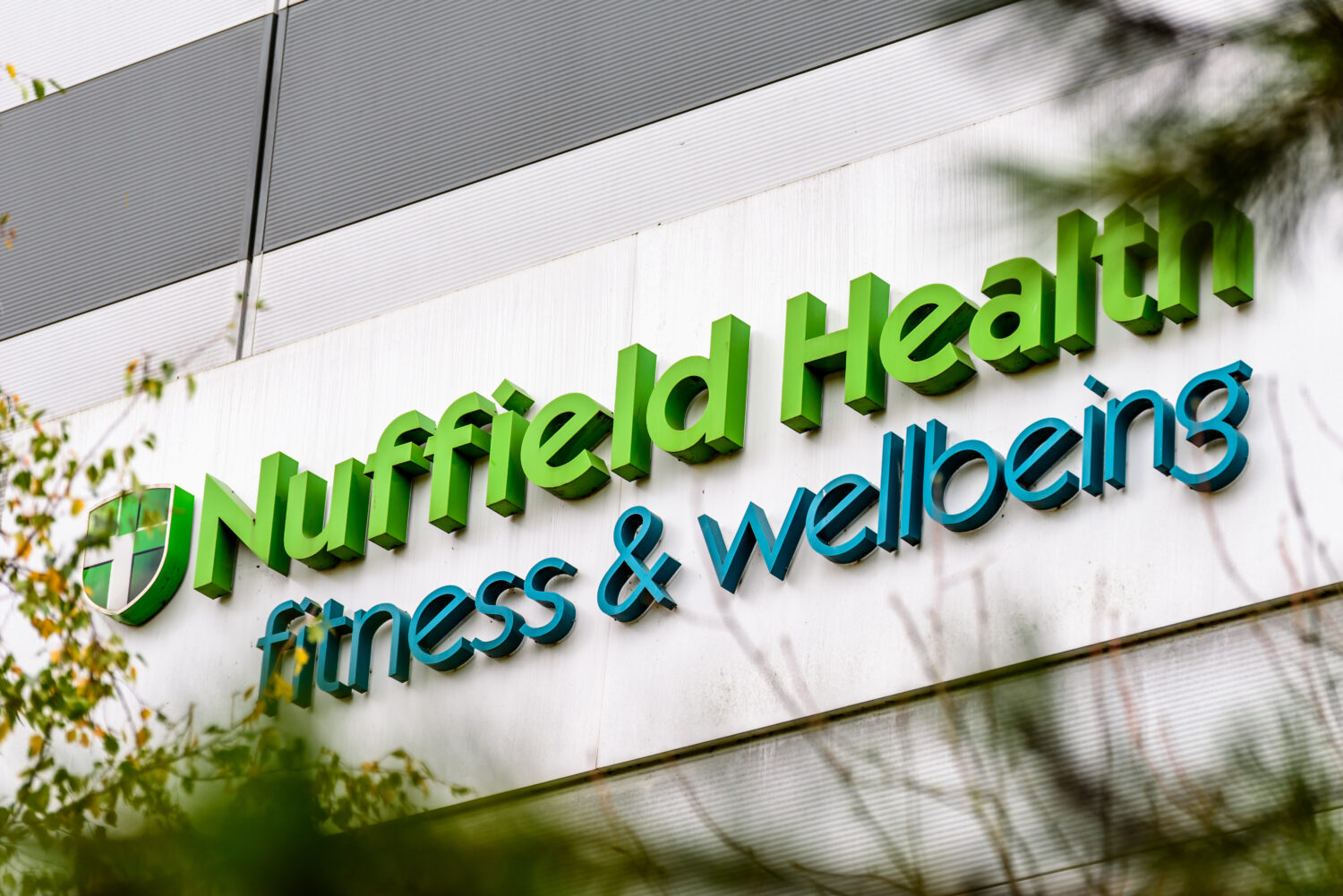How Nuffield Health is utilising robotics to boost revenue
Nuffield's CFO, Matthew Lynn discusses the financial thinking behind the investment in the Mako robot and explores its broader implications for patient care and operational efficiency
Nuffield's CFO, Matthew Lynn discusses the financial thinking behind the investment in the Mako robot and explores its broader implications for patient care and operational efficiency

This year, CFOs have been stuck between a rock and a hard place when it comes to technology investment. Due to growing economic – and in some instances political – instability, budgets have been cut. This has meant finance teams have had to make some hard choices when it comes to strategic investment.
In the healthcare sector, the integration of advanced technology is not just a trend but more of a fundamental shift, reshaping the landscape of patient care and operational efficiency. CFOs in this sector are grappling with how to invest in technological innovation judiciously, balancing the promise of medical advancement with the rigours of sound financial strategy.
Nuffield Health, the UK’s largest healthcare charity, provides a compelling example of how to navigate this landscape. The organisation’s strategic investment in the Mako robot is a case in point, reflecting a commitment to not only advancing medical care but also ensuring sound financial management.
In a recent interview with The CFO, Nuffield’s financial chief Matthew Lynn offers a window into the organisation’s approach. He discusses the financial thinking behind the investment in the Mako robot and explores its broader implications for patient care and operational efficiency.
The Mako robot at Nuffield Health Woking Hospital is a significant step towards integrating advanced technology in healthcare. Can you provide insights into the financial considerations that led to this investment?
Our recent investment in the Mako robot at two of our hospitals is part of our broader programme to ensure we deliver best-in-class services to patients, and access to the latest methods and technology is key.
Technology is playing an increasingly important role in medical care, and robotic surgery really is the future. We’re determined to make it easier for our consultants and hospital teams to deliver better health outcomes and recovery times for our patients.
In terms of financial investment, it’s vital that we invest in the right technologies, and our strategy is to do that in the most cost-effective way. It’s no secret that there are significant economic pressures on nearly all businesses at the moment – most notably from the ongoing cost of living crisis and high energy prices.
Despite these pressures, there is record demand for our services – our investment strategy must position us to meet this growing demand, while remaining responsive to a volatile external environment.
Thinking about our investment in the Mako robots in particular, entering into longer-term partnerships is both more cost effective, and ensures we can offer the latest treatment more widely.
With the introduction of such advanced technology, what kind of return on investment (ROI) does Nuffield Health anticipate, both in terms of financial gains and patient outcomes?
Of course, with our technology investments, particularly with robot assisted surgery, a healthy return on investment is a key part of our decision-making process.
However, equally important is ensuring we are continually providing the best equipment for our consultants and providing leading edge care for patients. Consultants want to work with the best equipment that gives their patients the best surgical outcomes.
Technological advancements often come with high upfront costs. How does Nuffield Health balance the need for innovation with financial sustainability?
Technology is an area we are keen to prioritise to enhance our services. We manage an extensive estate with more than 200 sites across the UK, so we always need to balance our desire to stay ahead of the curve and invest in leading technology, with financial sustainability.
However, it would be wrong to simply think of technology as a ‘cost’. It’s not – it’s an investment, and innovation in this area can bring financial returns. Technology brings efficiencies by streamlining and automating processes, freeing up our people to focus on delivering the best possible service to our patients and members. In our hospitals we’ve made it easier for people to book their first consultant appointment online, and we’ve already seen a 280 percent increase in patients booking in this way.
Aside from the financial and efficiency rewards, technology can help drive social value, which for a Charity like Nuffield Health is equally as important.
In simple terms, technology can help improve our reach and impact, which is something we have done through Nuffield Health 24/7 which, allows us to deliver some of our free-to-access health programmes virtually.

Are there other technological advancements or tools that Nuffield Health is considering investing in over the next few years? How do these potential investments align with the organisation’s long-term financial strategy?
We are increasingly living in a digital world – we spend much of our lives interacting with technology, yet for several reasons, healthcare administration is often well behind the curve.
For every leading-edge medical device or surgical robot, there are numerous, paper-based administration and reporting systems, and this is true right across the independent sector and the NHS. This doesn’t just lead to inefficient processes; it also makes for a poor patient experience.
This is why we’re investing in the Nuffield Health Electronic Patient Record (NEPR) programme, which is implementing TrakCare, an electronic version of our paper care record, into our 37 hospitals. It’s a critical enabler for our connected health strategy.
We now have 10 hospitals live, 6 in the deployment phase and the remaining hospitals will be live by the end of 2025.
TrakCare will provide us with a wealth of data providing us with better insights into our patients at each stage of their journey. This insight will help us build our future strategy. It will also enable us to move away from a paper-based care record to a digital system, reducing our carbon footprint.
Another example is our partnership with Careology, using app-based symptom monitoring to help improve the care of our patients undergoing cancer treatment. We piloted this through our Derby Hospital and have recently announced this new technology will be rolled out through 12 of our hospitals across the UK.
Implementing new technology often requires training and development for the staff. How does Nuffield Health budget for and manage these associated costs?
With all new projects, a full training needs analysis is completed as part of the procurement process. However, I wouldn’t call training a cost – investment in technology is of course an investment in better outcomes for our patients and members, but it’s also an investment in our people.
An example of this is the current Nuffield Health Electronic Patient Record project that is being delivered across the organisation’s hospital network. As part of our training programme apprenticeships are used as a great way of upskilling our people, and we are launching a digital and data literacy programme aimed at developing the workforce through a variety of vocational training programmes.
How does investing in advanced healthcare technology, like the Mako robot, provide Nuffield Health with a competitive advantage in the healthcare sector, and what are the anticipated financial benefits from this edge?
In simple terms, we are investing in better patient outcomes, allowing us to continue providing the best quality and standards of care. It also helps us stay on the front-foot, ensuring we attract and retain the best consultants and medical staff.
How does the integration of advanced technology fit into Nuffield Health’s long-term vision, both in terms of patient care and financial growth?
As the UK’s largest healthcare charity, where and how we invest is guided by our purpose – to build a healthier nation. Of course, financial sustainability is vital for ensuring that we can continue delivering our services to the people who rely on them, but finances are far from the only consideration.
It’s a fine balance, which involves investing carefully in areas where we see the most potential to help patients and ensuring there will be both financial ROI, and more importantly, significant health improvements for those in our care.
Every investment is being prioritised carefully to achieve the greatest return. We’ll keep turning on that tap slowly but surely, in a measured way. It’s not just about 2024 but a longer 5-year approach.